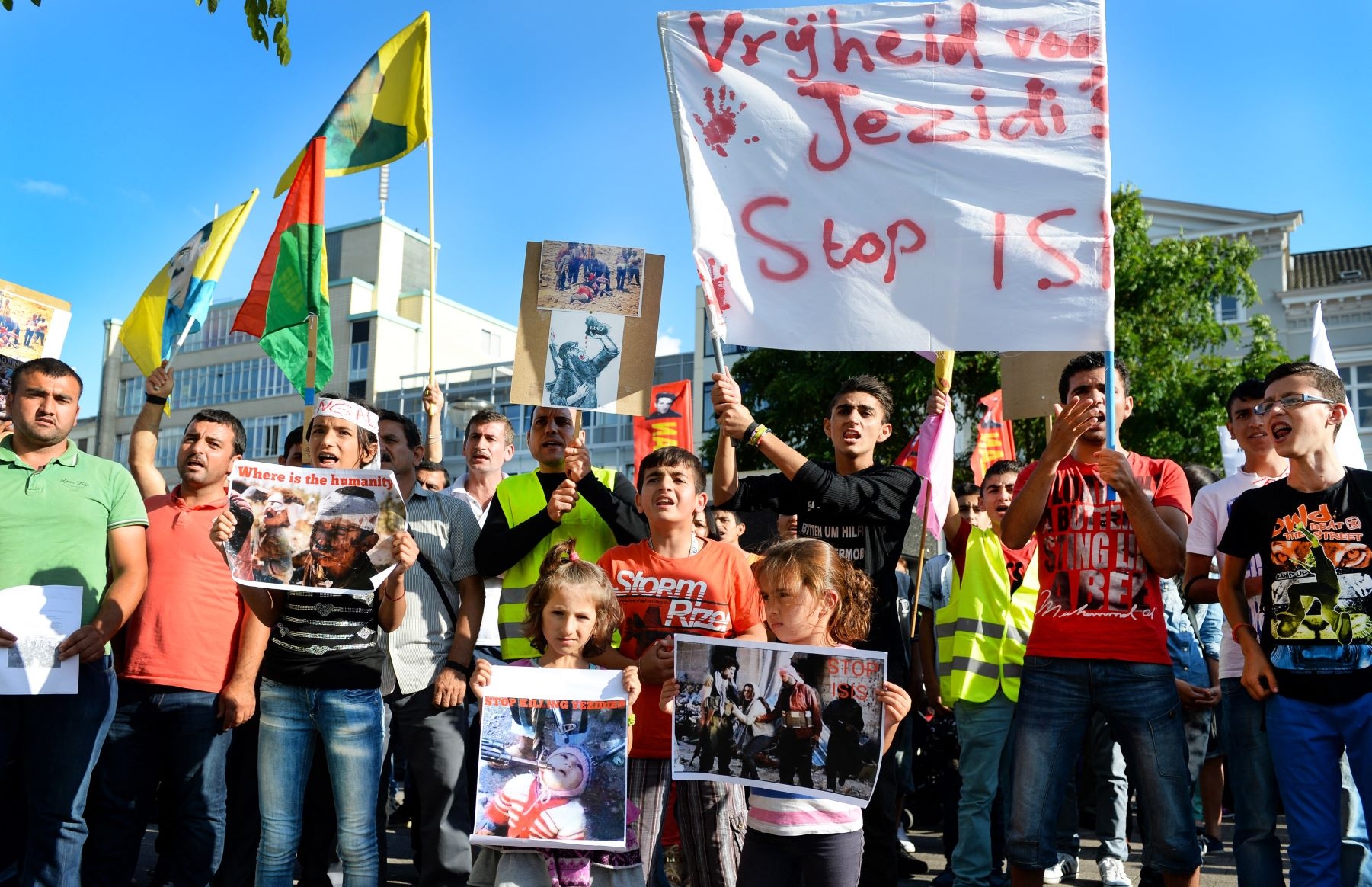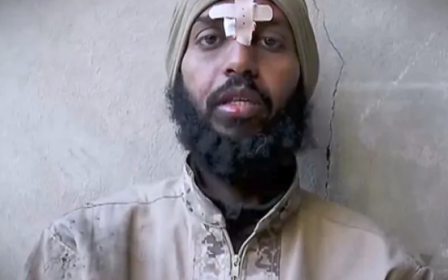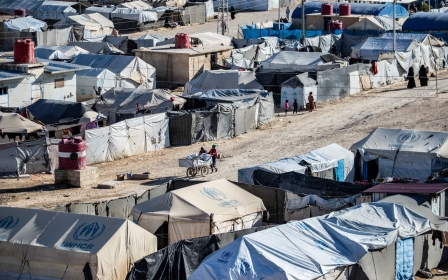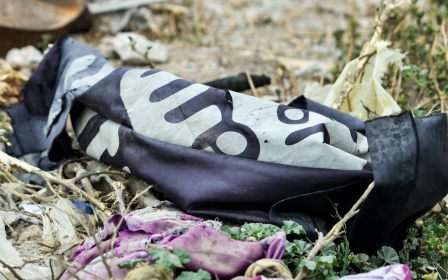Iraq: Dutch police seek information on perpetrators of Islamic State crimes against Yazidis

Netherlands police are looking for information on Dutch perpetrators of war crimes committed by the Islamic State (IS) group against the Yazidi community, according to a press release on Wednesday.
“The Dutch government wants to see perpetrators of war crimes and international crimes identified and tried,” said the Netherlands Police’s International Crimes Team, speaking on the eighth anniversary of the Yazidi genocide in Iraq.
On 3 August 2014, IS carried out mass killings against Yazidis in Iraq's Sinjar province, enslaving women, killing men and using Yazidi children as soldiers.
The United Nations has since branded the killings a genocide.
'On the eighth commemoration of the Yazidi genocide, we launched a call for witnesses'
- Brechtje van de Moosdijk, Netherlands Public Prosecution Service
“For quite some time, Dutch police and prosecutors have been investigating war crimes committed by IS, including those against the Yazidis," Brechtje van de Moosdijk, spokesperson for the Netherlands Public Prosecution Service, told Middle East Eye.
New MEE newsletter: Jerusalem Dispatch
Sign up to get the latest insights and analysis on Israel-Palestine, alongside Turkey Unpacked and other MEE newsletters
"Under the laws of universal jurisdiction we can prosecute perpetrators that are Dutch, or those who reside in the Netherlands.
“On the eighth commemoration of the Yazidi genocide, we launched a call for witnesses. We ask the Yazidi population to come forward with information on possible perpetrators with Dutch nationality. We are aware that this can be a difficult step.”
Dutch police said they were hoping to “prevent perpetrators from finding shelter in the Netherlands and living here unpunished", adding that they also wanted to prevent “situations in which victims of war crimes who fled to the Netherlands are confronted with the criminals they fled”.
The BBC previously reported on an incident in Germany in 2018 when a Yazidi teenager met her captor on the street, after which she reported the incident to the German police.
The repatriation of Dutch IS women from camps in northeast Syria to the Netherlands in recent years has led to fears among Dutch Yazidis that crimes committed against them might go unpunished.
Since 2012, hundreds of Dutch nationals have travelled to Syria and Iraq and joined IS. Several Dutch women with ties to IS and children have returned since last year. One of them, Ilham B, was sentenced to three-and-a-half years in prison in June.
The Dutch police said there were some indications that Dutch nationals were involved in the commission of crimes against the Yazidi community in Syria and Iraq.
“IS women also played a part in the commission of these crimes,” they said.
Lengthy process
There have been earlier examples of Dutch women abetting in crimes against Yazidi women.
Layla Talu, a Yazidi victim of IS, was reportedly raped by a 33-year-old Lebanese man with the help of his Dutch wife, Al Jazeera reported in 2020. She was also subjected to sexual assault by a number of other men.
The Dutch Minister of Justice and Security Dilan Yesilgoz-Zegerius, an ethnic Kurd, met with Yazidi activists in March to address their concerns.
'There is no central court system that brings together suspects, evidence, victims and witnesses all in one courtroom to conduct a proper investigation'
- Murad Ismael, Sinjar Academy
“Efforts are being made to ensure that these crimes do not go unpunished,” she said in a tweet after the meeting.
She also visited Iraq and the autonomous Kurdistan region in May to discuss judicial cooperation with local authorities against IS suspects.
“The important issue is how can we work together while we try to prevent impunity for people who are committing crimes and how can we help the victims,” Yesilgoz-Zegerius told reporters after meeting Yazidi survivors and activists in Erbil, according to Kurdistan 24.
Van de Moosdijk said that all information would be “handled confidentially and carefully, by an experienced war crimes team. With this help, we might be able to bring those responsible to court."
She added: “Those investigations are lengthy and difficult and evidence that will stand in court needs to be collected."
'Working tirelessly'
The Netherlands is following on the heels of German prosecutors, who last year successfully handed down a genocide conviction to an IS member for crimes perpetrated against Yazidis, becoming the first country to do so.
Defne Akca, the head of investigations at Unitad, the UN team that investigates IS crimes, said during a commemoration event in Duhok on Wednesday that another female IS member had been “convicted for aiding and abetting genocide against Yazidis".
“Such trials represent what we all work tirelessly to achieve, holding members of IS accountable through evidence-based trials before competent courts," she told the gathering, organised by the Free Yezidi Foundation and other Yazidi organisations.
Unitad has previously supported German prosecutors with evidence by engaging with witnesses in Iraq. The Dutch authorities also fund and work with Unitad.
However, Murad Ismael, the president and co-founder of the Sinjar Academy, told MEE that the current "national" approach to holding IS accountable made it “almost impossible” to convict anyone.
“Because there is no central court system that brings together suspects, evidence, victims and witnesses all in one courtroom to conduct a proper investigation. This is why we have only seen two genocide convictions globally and both in Germany,” he said.
Ismael said it would be better to establish an international tribunal and “process thousands of IS suspects in one place. The international community doesn’t want to do this. In fact, it is much cheaper than current national investigations and trials that cost millions of dollars”.
Middle East Eye delivers independent and unrivalled coverage and analysis of the Middle East, North Africa and beyond. To learn more about republishing this content and the associated fees, please fill out this form. More about MEE can be found here.





